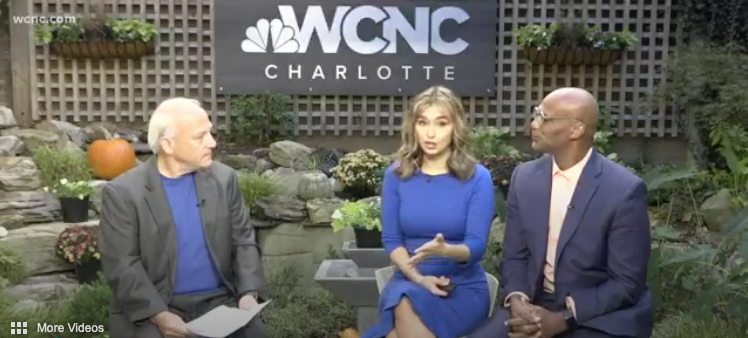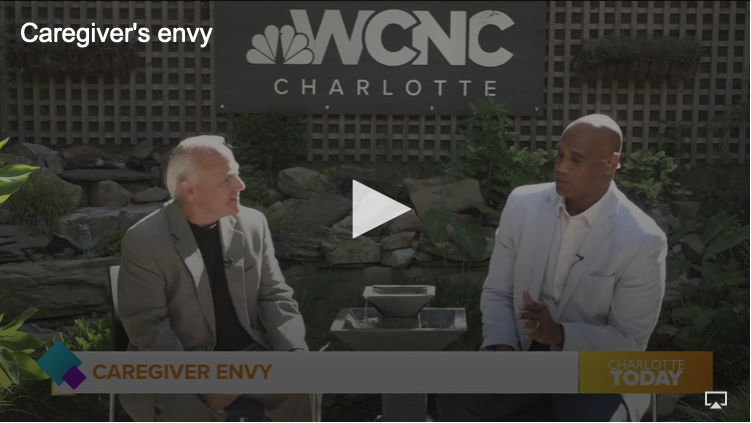Choosing Long-Term Care Based on Emergency Preparedness – Charlotte Today
Choosing Long-Term Care Based on Emergency Preparedness – Charlotte Today

Louisiana officials recently revoked the licenses of seven nursing homes that evacuated patients to a warehouse where seven of them died ahead of Hurricane Ida’s landfall. Hurricane Katrina should have been the warning shot when it comes to emergency preparedness in care homes. Unfortunately, that has not been the case. So what should you look for when evaluating a place in terms of the ability to handle emergencies. Aging Expert Anthony Cirillo has this advice. Families have many things to consider when choosing care for a loved one. Certainly in this new age, questions such as vaccination rates among staff and mandatory vaccinations are on the table. In light of the increased frequency of dangerous storms, it is important to consider emergency preparedness as an item to evaluate too. Here are some things to consider. Does the facility have an emergency plan in writing that you can review? Are staff and residents trained for the plan and how often is it updated? Is the facility in a flood or fire zone? How is the plan communicated to residents and families? Ask to see state inspection reports for emergency preparedness. What is their shelter in place plan? How do they handle power outages, temperature fluctuations, oxygen and life support systems, medication refrigeration? What is their evacuation plan? Where will they go? How will they get there? That last item is very important. During an emergency, a facility may ask you to come and get mom and dad. Are you nearby? Can you transport them safely? Is your home-equipped for short-term living situations? Here is what you can do to prepare and help a loved one. You can create your own disaster plan and prepare a supply kit for a loved one. One of the most vital aspects of preparing a plan is knowing how you will communicate with a loved one. What is the WIFI and cellular is out? Consider emergency monitoring systems that incorporate Z-Wave or ZigBee. These are networks that allow devices to communicate with each other without using Wi-Fi or Bluetooth, no Internet, modem or router needed. Examples include: Samsung SmartThings Hub; The Wink Hub 2; Samsung Smartthings Smart Home Hub Gather important phone numbers – family, friends, churches, shelters, aid organizations, care team members. For more information visit theagingexperience.com
Podcast: Play in new window | Download
Subscribe: Apple Podcasts | RSS
Maximizing the Capabilities of a Loved One with Dementia – Charlotte Today
Maximizing the Capabilities of a Loved One with Dementia – Charlotte Today
We often think of people with dementia, especially those with Alzheimer’s, as mostly dependent on others and incapable. Is that really the case? With forethought, caregivers can identify tasks that their loved one can do. Maximizing their capability benefits everyone. And it keeps disease progression at bay. I cover this on Charlotte Today using principles from Carol Amos, author of “H.O.P.E. for the Alzheimer’s Journey. She says the caregiver’s role is to fulfill the needs of their loved one that the loved one cannot do for themselves. She worked proactively to slow the decline of their mother’s dementia to maximize her ability to care for herself. Scheduling regular doctor appointments. Receiving vaccinations and age appropriate health screenings. The family carefully weighed the risk and benefits of any medical procedure. It is important to receive a proper diagnosis as they will rule out other causes of the symptoms such as vitamin deficiencies, hormone imbalance, medication overload, depression, or even sleep apnea.
Podcast: Play in new window | Download
Subscribe: Apple Podcasts | RSS
Maximizing the Capabilities of a Loved One with Dementia – Charlotte Today
Maximizing the Capabilities of a Loved One with Dementia – Charlotte Today
We often think of people with dementia, especially those with Alzheimer’s, as mostly dependent on others and incapable. Is that really the case? With forethought, caregivers can identify tasks that their loved one can do. Maximizing their capability benefits everyone. And it keeps disease progression at bay. I cover this on Charlotte Today using principles from Carol Amos, author of “H.O.P.E. for the Alzheimer’s Journey. She says the caregiver’s role is to fulfill the needs of their loved one that the loved one cannot do for themselves. She worked proactively to slow the decline of their mother’s dementia to maximize her ability to care for herself. Scheduling regular doctor appointments. Receiving vaccinations and age appropriate health screenings. The family carefully weighed the risk and benefits of any medical procedure. It is important to receive a proper diagnosis as they will rule out other causes of the symptoms such as vitamin deficiencies, hormone imbalance, medication overload, depression, or even sleep apnea.
Caregiver Envy – My Segment on Charlotte Today

Caregiver Envy – My Segment on Charlotte Today
People who care for family members and other people may be seen as selfless and unselfish, but you may not know that they may be struggling with feelings of envy. Caregiver envy os a real thing.. Oftentimes people are thrust into a that position without even volunteering for the job. Resentment may ensue because some of the liberties and freedoms they once enjoyed are now replaced by caring for someone else. For example, seeing people holding hands and walking in the park may spark flames of jealousy. Having to meet the demands of parents who may be sicker or have disabilities more severe than their friends may arouse feelings of envy. Or maybe the caregiver had to give up a job to watch and care for love ones may cause deep seeds of envy. The underline causes of envy are natural. These thoughts can pop up at any time. So what should you do if you have these feelings?
Accept that you may feel this way. Second, think about what your losing in a relationship where dementia is taking the person memories away. Third, focus on your grief and sorrow of loss relationships. Finally, letting go of guilty feelings and coming to terms with your situation will allow you to invite friends back into your life. There is a bright side to care giving. Be proud of the fact that you have done something worthwhile and amazing; taking care of someone who could not do for themselves. Shout out to Barry Jacobs whose AARP article was the inspiration.
Podcast: Play in new window | Download
Subscribe: Apple Podcasts | RSS
Caregiver Envy – My Segment on Charlotte Today
Caregiver Envy – My Segment on Charlotte Today
People who care for family members and other people may be seen as selfless and unselfish, but you may not know that they may be struggling with feelings of envy. Caregiver envy os a real thing.. Oftentimes people are thrust into a that position without even volunteering for the job. Resentment may ensue because some of the liberties and freedoms they once enjoyed are now replaced by caring for someone else. For example, seeing people holding hands and walking in the park may spark flames of jealousy. Having to meet the demands of parents who may be sicker or have disabilities more severe than their friends may arouse feelings of envy. Or maybe the caregiver had to give up a job to watch and care for love ones may cause deep seeds of envy. The underline causes of envy are natural. These thoughts can pop up at any time. So what should you do if you have these feelings?
Accept that you may feel this way. Second, think about what your losing in a relationship where dementia is taking the person memories away. Third, focus on your grief and sorrow of loss relationships. Finally, letting go of guilty feelings and coming to terms with your situation will allow you to invite friends back into your life. There is a bright side to care giving. Be proud of the fact that you have done something worthwhile and amazing; taking care of someone who could not do for themselves. Shout out to Barry Jacobs whose AARP article was the inspiration.










